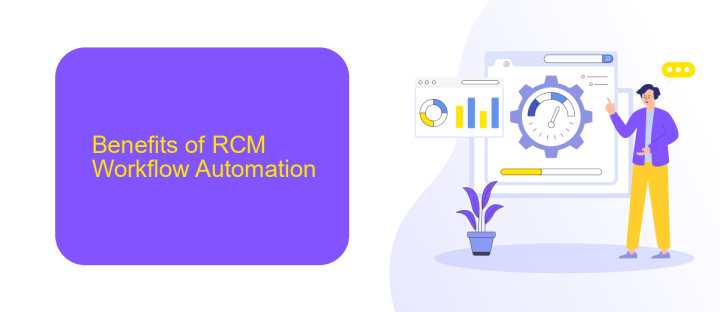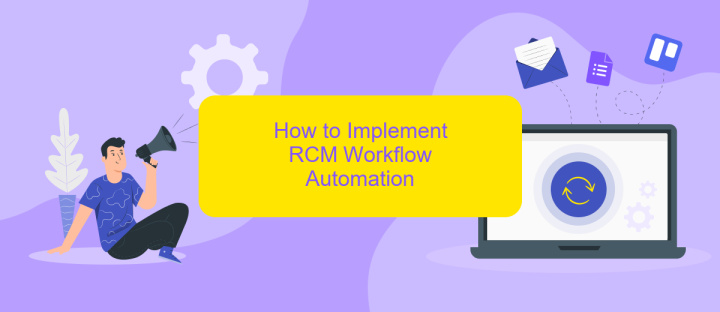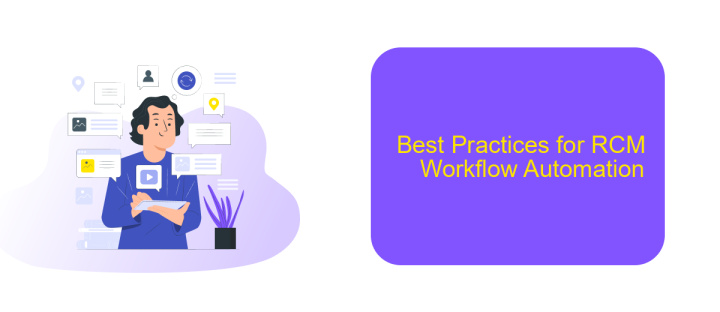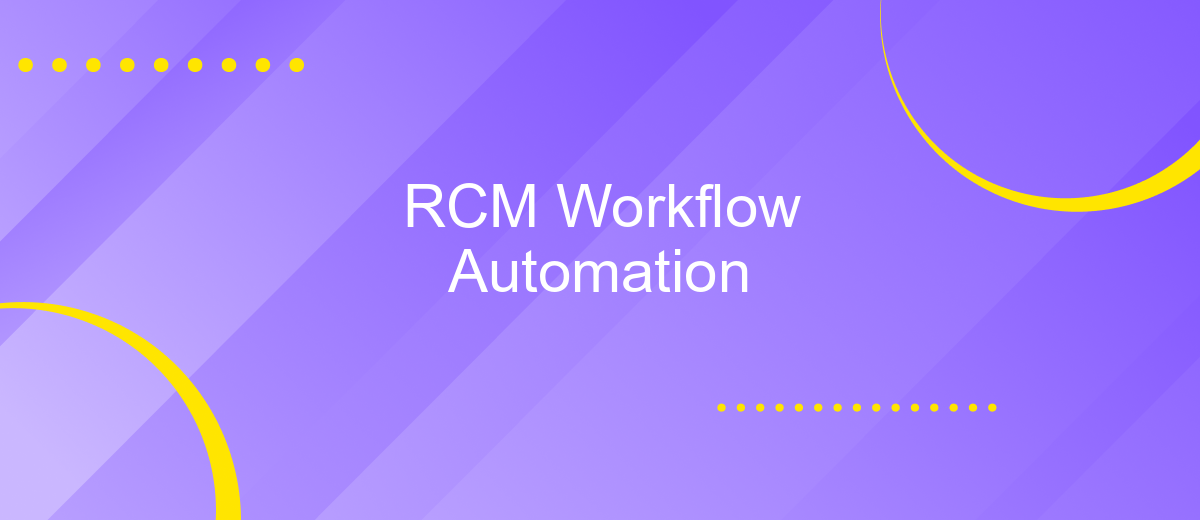RCM Workflow Automation
Revenue Cycle Management (RCM) Workflow Automation is revolutionizing the healthcare industry by streamlining administrative processes, improving accuracy, and reducing costs. By leveraging advanced technologies such as artificial intelligence and machine learning, RCM automation enhances efficiency in billing, coding, and claims processing. This article explores the key benefits and implementation strategies of RCM Workflow Automation, highlighting its transformative impact on healthcare organizations.
Introduction
In today's fast-paced business environment, the automation of RCM (Revenue Cycle Management) workflows has become essential for optimizing efficiency and reducing human error. By automating repetitive tasks, organizations can focus on more strategic activities, thereby improving overall productivity and profitability.
- Streamlining billing processes
- Enhancing data accuracy
- Reducing operational costs
- Improving compliance with regulations
- Facilitating better decision-making
Integration of various systems is crucial for effective RCM workflow automation. Tools like ApiX-Drive can help seamlessly connect different software solutions, allowing for smooth data flow and enhanced functionality. By leveraging such services, businesses can ensure that their RCM processes are both efficient and scalable, ultimately leading to better financial outcomes.
Benefits of RCM Workflow Automation

Implementing RCM workflow automation significantly enhances operational efficiency by streamlining repetitive tasks and minimizing the potential for human error. Automated processes ensure that billing cycles, claims management, and patient follow-ups are handled swiftly and accurately, leading to faster revenue collection and improved cash flow. This not only reduces administrative burdens but also allows healthcare professionals to focus more on patient care rather than paperwork.
Moreover, RCM workflow automation facilitates seamless integration with various healthcare systems through platforms like ApiX-Drive, which simplifies the process of connecting disparate software solutions. This ensures that data flows smoothly between different systems, providing a unified view of financial and patient information. Consequently, this integration reduces the likelihood of data discrepancies and enhances decision-making capabilities, ultimately leading to better financial health for healthcare organizations.
How to Implement RCM Workflow Automation

Implementing RCM (Revenue Cycle Management) Workflow Automation can significantly enhance the efficiency and accuracy of your financial processes. To start, it's essential to identify the specific areas within your RCM that could benefit from automation, such as claims processing, patient billing, and payment posting.
1. Assess your current RCM processes and pinpoint bottlenecks.
2. Choose a reliable automation tool that suits your needs.
3. Integrate the tool with your existing systems using services like ApiX-Drive, which simplifies the integration process.
4. Train your staff on how to use the new automated workflows.
5. Monitor the performance of the automated processes and make adjustments as needed.
By following these steps, you can streamline your RCM operations, reduce errors, and improve overall efficiency. Utilizing integration services like ApiX-Drive ensures a smooth transition and maximizes the benefits of your automation efforts.
Best Practices for RCM Workflow Automation

Implementing best practices in RCM workflow automation ensures efficiency and accuracy in managing revenue cycles. Begin by thoroughly analyzing your current processes to identify areas that can benefit most from automation. This initial assessment will provide a clear roadmap for the automation journey.
After identifying key areas, prioritize the integration of reliable automation tools. Platforms like ApiX-Drive can streamline the integration process, allowing seamless data transfer between various systems. This ensures that all relevant information is accurately captured and utilized across different stages of the revenue cycle.
- Regularly monitor and review automated processes to ensure they function as intended.
- Train staff to effectively use and manage automated systems.
- Continuously update and optimize automation tools to adapt to changing needs.
- Ensure compliance with industry standards and regulations to avoid potential legal issues.
By following these best practices, organizations can significantly enhance their RCM workflows, leading to improved financial performance and operational efficiency. Automation, when correctly implemented, reduces human error, increases productivity, and ensures a smoother revenue cycle management process.


Future of RCM Workflow Automation
The future of RCM (Revenue Cycle Management) Workflow Automation is poised to revolutionize the healthcare industry by leveraging advanced technologies such as artificial intelligence, machine learning, and robotic process automation. These technologies will enhance the accuracy and efficiency of billing processes, reduce human errors, and ensure faster reimbursement cycles. As healthcare providers continue to adopt digital solutions, the integration of these advanced tools will become more seamless, enabling a more streamlined and efficient revenue cycle management process.
One of the key aspects of future RCM workflow automation will be the integration of various systems and services. Tools like ApiX-Drive will play a crucial role in this transformation by offering seamless integration capabilities between different platforms. ApiX-Drive can automate data transfer between EHR (Electronic Health Records) systems, billing software, and other essential healthcare applications, ensuring that all systems work in harmony. This will not only improve operational efficiency but also enhance data accuracy and compliance, ultimately leading to better financial health for healthcare organizations.
FAQ
What is RCM Workflow Automation?
How can RCM Workflow Automation benefit my organization?
What are the key features to look for in an RCM Workflow Automation tool?
How difficult is it to implement RCM Workflow Automation?
Can RCM Workflow Automation integrate with my existing systems?
Apix-Drive is a universal tool that will quickly streamline any workflow, freeing you from routine and possible financial losses. Try ApiX-Drive in action and see how useful it is for you personally. In the meantime, when you are setting up connections between systems, think about where you are investing your free time, because now you will have much more of it.

